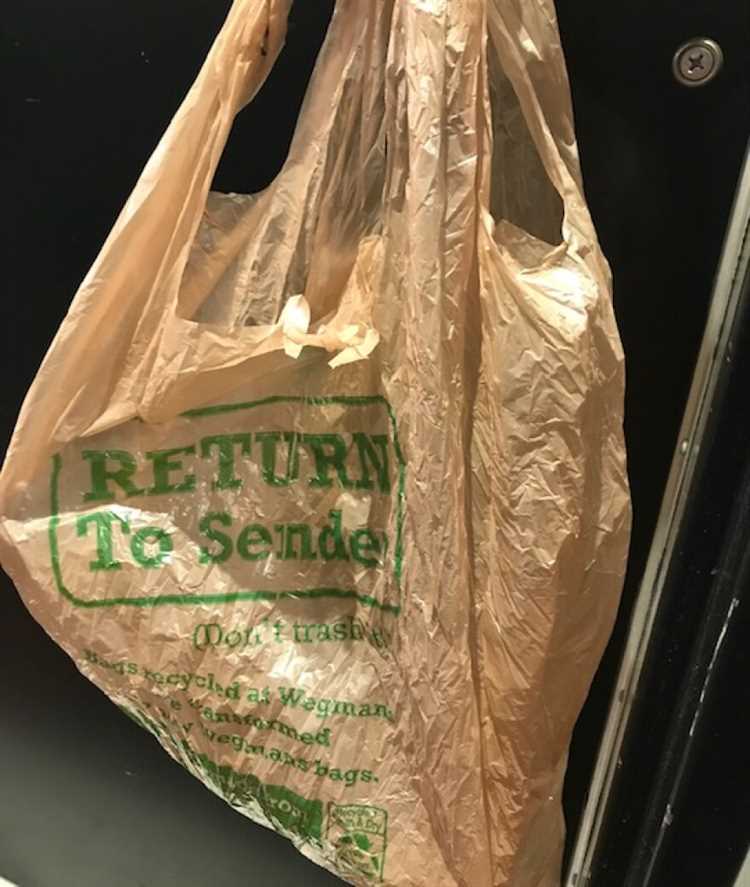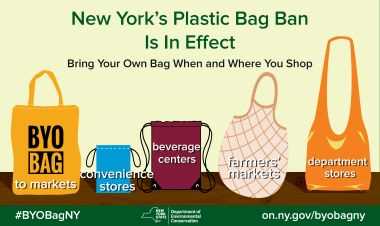Plastic pollution has become a global crisis, prompting governments and organizations around the world to take action. One effective measure that has gained traction is the implementation of a plastic bag ban. However, enacting such a ban is just the first step. Ensuring its enforcement is key to its success.
Strategies for enforcing the plastic bag ban vary depending on the country or region implementing the policy. Some governments rely on fines and penalties to discourage the use of plastic bags, while others employ education and awareness campaigns to promote behavioral change. Regardless of the approach, effective implementation is crucial to achieve the intended environmental impact.
One widely successful strategy is the use of reusable alternatives. By providing consumers with affordable and convenient alternatives such as fabric or biodegradable bags, the demand for plastic bags decreases naturally. Additionally, incentivizing the use of reusable bags through discounts or rewards further encourages adoption.
Another approach is through rigorous monitoring and enforcement. This involves conducting regular inspections of retailers and imposing penalties for non-compliance. By holding businesses accountable for adhering to the ban, authorities can effectively reduce the production and distribution of plastic bags.
In conclusion, enforcing a plastic bag ban requires a combination of education, incentives, and strict enforcement. It is important for governments to devise comprehensive strategies that address all aspects of the ban, from public education to penalties for non-compliance. By doing so, we can take significant steps towards reducing plastic pollution and protecting our environment for future generations.
- Why Plastic Bag Bans Are Necessary
- Harmful Effects of Plastic Bags on the Environment
- Benefits of Implementing a Plastic Bag Ban
- Challenges in Enforcing the Plastic Bag Ban
- Questions and answers:
- What is the plastic bag ban?
- Why was the plastic bag ban implemented?
- What are the strategies for enforcing the plastic bag ban?
- How effective is the plastic bag ban in reducing plastic pollution?
Why Plastic Bag Bans Are Necessary

Plastic bag bans have become a necessary measure in combating the harmful effects of plastic pollution on our environment. Here are several reasons why such bans are crucial:
| 1. | Reduction of Plastic Waste: | Plastic bags are one of the most common forms of plastic waste found in our oceans and landfills. By implementing bans, we can significantly reduce the amount of plastic waste produced and prevent it from polluting our environment. |
| 2. | Protection of Wildlife: | Plastic bags pose a significant threat to wildlife, especially marine animals and seabirds. Many animals mistake plastic bags for food and end up ingesting them, resulting in severe health issues or even death. By banning plastic bags, we can help protect these vulnerable creatures. |
| 3. | Conservation of Resources: | Plastic bags are made from non-renewable resources, such as petroleum. By reducing the consumption of plastic bags through bans, we can conserve these valuable resources for future generations. |
| 4. | Promotion of Sustainable Alternatives: | Plastic bag bans encourage individuals and businesses to seek out and use sustainable alternatives, such as reusable bags or paper bags. By promoting these alternatives, we can create a culture of sustainability and reduce our reliance on single-use plastics. |
| 5. | Preservation of Aesthetics: | Plastic bags are a common sight in littered areas, negatively impacting the aesthetic appeal of our surroundings. By implementing bans, we can improve the overall cleanliness and beauty of our communities. |
In conclusion, plastic bag bans are necessary to combat plastic pollution, protect wildlife, conserve resources, promote sustainable alternatives, and preserve aesthetics. By implementing these bans, we can make a significant positive impact on our environment and create a more sustainable future.
Harmful Effects of Plastic Bags on the Environment
Plastic bags have become an integral part of our daily lives, but their convenience comes at a high cost to the environment. Here are some of the harmful effects that plastic bags have on our planet:
1. Pollution: Plastic bags are a major source of pollution, especially in marine ecosystems. When not properly disposed of, they can end up in rivers, lakes, and oceans, where they pose a significant threat to marine life. Marine animals often mistake plastic bags for food and can suffer from ingestion or entanglement, leading to severe injuries or death.
2. Non-Biodegradable: Plastic bags are made from polyethylene, a synthetic polymer that takes hundreds of years to decompose. This means that the plastic bags we use today will continue to exist for generations, causing long-term harm to the environment. Their slow decomposition also means that their negative impacts will persist for a significant amount of time.
3. Resource Depletion: The production of plastic bags requires significant amounts of non-renewable resources, such as petroleum. As these resources are depleted, their extraction becomes more harmful to the environment due to increased drilling and refining activities. By reducing our reliance on plastic bags, we can help conserve these valuable resources and reduce environmental damage.
4. Litter: Plastic bags are often discarded carelessly, leading to widespread litter in our communities. Not only does this litter make our streets and parks look unsightly, but it can also clog drains and contribute to flooding during heavy rains. The litter problem caused by plastic bags requires extensive cleanup efforts, further impacting the environment.
5. Carbon Footprint: The production, transport, and disposal of plastic bags contribute to greenhouse gas emissions and climate change. The manufacturing process releases harmful pollutants into the atmosphere, while the transport of plastic bags adds to carbon emissions. Furthermore, plastic bags that end up in landfills emit methane, a potent greenhouse gas.
6. Wildlife Disturbance: Plastic bags trapped in trees and other natural habitats can disrupt the lives of wildlife. Birds may use plastic bags as nest materials, which can harm their young or lead to entanglement. Additionally, plastic bags can smother plants and prevent their growth, affecting the delicate balance of ecosystems.
In conclusion, plastic bags have far-reaching and detrimental effects on the environment. It is essential for individuals, businesses, and governments to work together to reduce the use of plastic bags and adopt more sustainable alternatives. By doing so, we can protect our planet and create a cleaner, healthier future for all living beings.
Benefits of Implementing a Plastic Bag Ban

1. Environmental Preservation:
Implementing a plastic bag ban helps reduce the negative impact of plastic bags on the environment. Plastic bags are not biodegradable and can take hundreds of years to decompose. By banning plastic bags, we can prevent thousands of tons of plastic waste from entering landfills, waterways, and natural habitats.
2. Decreased Pollution:
Plastic bags are a major source of pollution, particularly in our oceans and waterways. They often end up as litter, causing harm to marine life and polluting the water. By banning plastic bags, we can significantly decrease pollution and protect the delicate ecosystems that rely on clean water.
3. Conservation of Resources:
Plastic bags are made from non-renewable resources such as petroleum and natural gas. By implementing a ban, we can conserve these valuable resources and reduce our dependence on fossil fuels. This not only helps protect the environment but also promotes sustainability for future generations.
4. Cost Savings:
Plastic bags may seem inexpensive, but the hidden costs associated with their production, distribution, and disposal are significant. By implementing a ban, communities can save money on waste management and cleanup efforts, as well as reduce the costs associated with the damage caused by plastic bag pollution.
5. Promotion of Sustainable Alternatives:
Implementing a plastic bag ban encourages the use of reusable alternatives such as cloth bags, paper bags, or biodegradable options. By promoting these alternatives, we can raise awareness about sustainable choices and encourage individuals to adopt more environmentally friendly habits in their daily lives.
6. Public Health Benefits:
Plastic bags can pose a threat to human health, especially when they contaminate food or water sources. By implementing a ban, we can reduce the risk of plastic bag-related illnesses and improve public health overall.
7. Global Leadership:
By implementing a plastic bag ban, communities can showcase their commitment to environmental sustainability and become leaders in the global movement towards reducing plastic waste. This can inspire other regions to follow suit and adopt their own bans, leading to a significant worldwide impact.
Overall, implementing a plastic bag ban offers numerous benefits for the environment, public health, and sustainable resource management. By taking action to reduce plastic waste, we can create a cleaner, healthier, and more sustainable future for generations to come.
Challenges in Enforcing the Plastic Bag Ban
The implementation of a plastic bag ban is not without its challenges. Despite the potential benefits, there are several obstacles that authorities and communities may face when enforcing the ban. These challenges include:
- Resistance from businesses: Some businesses may oppose the ban, especially those that rely heavily on plastic bags for packaging and delivery. They may argue that alternative options are more expensive or less convenient.
- Consumer pushback: Some consumers may resist the ban, finding it inconvenient to switch to reusable bags or pay for alternative options. Educating and persuading consumers to change their behavior can be a significant challenge.
- Enforcement difficulties: Enforcing the ban and ensuring compliance with the regulations can be a challenge for authorities. Monitoring and penalizing businesses that continue to distribute plastic bags requires dedicated resources and enforcement mechanisms.
- Black market activity: The ban may lead to the emergence of a black market for plastic bags, where individuals or businesses illegally sell or distribute them. This creates an additional challenge for enforcement agencies striving to eliminate plastic bag use entirely.
- Regional disparities: The ban may face different levels of acceptance and implementation across regions. Some communities may embrace the ban wholeheartedly, while others may struggle to adopt or enforce it consistently.
- Unintended consequences: Banning plastic bags may have unintended consequences, such as an increase in the use of alternative single-use items or an uptick in the consumption of paper bags, which also have environmental impacts.
Despite these challenges, taking steps towards reducing plastic bag usage is a crucial and necessary endeavor. By addressing these obstacles proactively, authorities and communities can work towards a successful and effective ban on plastic bags.
Questions and answers:
What is the plastic bag ban?
The plastic bag ban refers to a regulation that prohibits or restricts the use of single-use plastic bags typically provided at retail stores. It aims to reduce plastic pollution and encourage the use of reusable bags.
Why was the plastic bag ban implemented?
The plastic bag ban was implemented to address the environmental impact of single-use plastic bags. These bags are non-biodegradable and contribute to pollution, harm wildlife, and take up valuable landfill space. By banning them, governments promote more sustainable alternatives.
What are the strategies for enforcing the plastic bag ban?
There are several strategies for enforcing the plastic bag ban. These include conducting public awareness campaigns to educate consumers about the ban, implementing fines or penalties for non-compliance, and working closely with retailers to ensure they are adhering to the regulation.
How effective is the plastic bag ban in reducing plastic pollution?
The effectiveness of the plastic bag ban in reducing plastic pollution varies. Studies show that countries and cities that have implemented the ban have seen a significant reduction in plastic bag usage and litter. However, there are also challenges, such as the increase in the use of alternative single-use bags or the need for better enforcement in some areas.